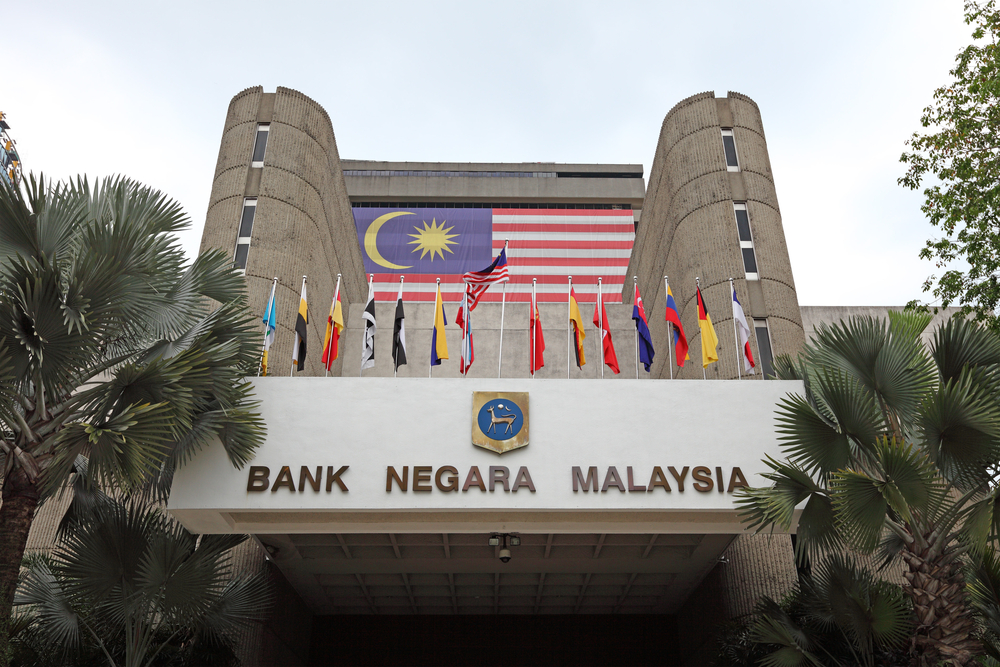AS expected, Bank Negara Malaysia (BNM)’s Monetary Policy Committee (MPC) today raised the central bank’s overnight policy rate (OPR) by 25 basis points to 2.5%.
The ceiling and floor rates of the corridor of the OPR are correspondingly increased to 2.75% and 2.25%, respectively.
In a statement announcing the OPR hike, BNM said the global economy continues to expand, albeit at a slower pace, weighed down by rising cost pressures, tighter global financial conditions and strict containment measures in China.
Global growth also continues to be supported by improvements in labour market conditions and the full reopening of most economies and international borders.
Even so, inflationary pressures have remained high due to elevated commodity prices and tight labour markets, despite continued easing in global supply chain conditions.
“Consequently, central banks are expected to continue adjusting their monetary policy settings, some at a faster pace, to reduce inflationary pressures.
“In particular, aggressive adjustments in US interest rates have contributed to a strong US dollar environment. This has resulted in higher volatility in financial markets, affecting other major and emerging market currencies, including the ringgit,” BNM said.
The OPR increase from 2.25% to 2.5% – the first time since 2010 that BNM raised rates three times in a row – was forecasted by economists and financial services company Moody’s Analytics earlier this week.
Downside risks to challenge global growth
Moving forward, BNM said global growth is expected to face challenges from the impact of monetary policy tightening in most economies and COVID-19 pandemic management measures in China.
These downside risks include elevated cost pressures, the potential energy crisis in Europe and a sharp tightening in financial market conditions.
As for the Malaysian economy, BNM said the transition to endemicity and policy measures have contributed to the stronger growth performance in the second quarter of 2022 (2Q 2022), with indicators pointing to continued growth, underpinned by support from private sector spending.
It noted that labour market conditions and income prospects remain positive, with unemployment and underemployment declining further.
On the other hand, the reopening of international borders will lift tourism-related sectors while investment activity and prospects would be supported by the realisation of multiyear projects.
“Nevertheless, external demand is expected to moderate following softening global growth,” BNM noted.
Even so, despite the increased volatility in the global financial and foreign exchange markets, the aforementioned developments are not expected to derail Malaysia’s growth, BNM said.
“Domestic liquidity remains sufficient, with continued orderly functioning of the financial and foreign exchange markets,” it added.
“Financial institutions also continue to operate with strong capital and liquidity buffers. These will ensure financial intermediation remains supportive of the economy.”
Headline inflation to peak, then moderate
Headline inflation, which has averaged at 2.8% year-to-date, is projected to peak in the third quarter of the year (3Q 2022) before moderating thereafter due to dissipating base effects and in line with the expected easing of global commodity prices.
Underlying inflation, as measured by core inflation, is expected to average closer to the upper end of the 2.0% to 3.0% forecast range in 2022, with some signs of demand-driven pressures amid the high-cost environment.
“The extent of upward pressures to inflation will remain partly contained by existing price controls, fuel subsidies and the prevailing spare capacity in the economy,” BNM said.
“The inflation outlook, however, continues to be subject to domestic policy measures, as well as global commodity price developments arising mainly from the ongoing military conflict in Ukraine and prolonged supply-related disruptions.”
With the positive growth prospects for the Malaysian economy remaining intact, BNM said its MPC decided to further adjust the degree of monetary accommodation.
“At the current OPR level, the stance of monetary policy continues to remain accommodative and supportive of economic growth.
“The MPC is not on any preset course and will continue to assess evolving conditions and their implications on the overall outlook to domestic inflation and growth.”
Any adjustments to the monetary policy settings going forward, it added, would be done in a “measured and gradual manner” so that monetary policy remains accommodative to support sustainable economic growth in an environment of price stability. – Sept 8, 2022









